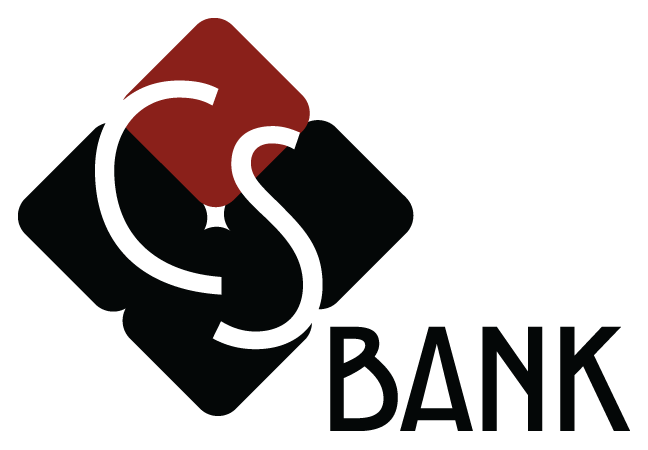not featured
2025-06-09
6/9/2025
Mortgage
published
%20(47).jpg)
Guide to Choosing a Mortgage
The homebuying process can be confusing and with so many moving pieces, it’s hard to keep track. Not only are you searching for the right home, but you’re also looking for the best mortgage for your financial situation.
With so many options out there, it can be difficult knowing where to start. As a full-service mortgage lender in Northwest Arkansas and Southwest Missouri, we are here to break down the various types of mortgages and help you decide which one is best for your home buying journey.
Conventional Fixed Rate Mortgage
A conventional fixed rate mortgage is the traditional mortgage that you’re likely familiar with. It’s offered by virtually all lenders and isn’t insured by a federal government agency.
You can get both short-term and long-term fixed rates, typically for 10, 15 or 30 years. The interest rate on your loan will stay the same for the duration of the loan, which makes monthly payments easier to budget for.
A short-term loan will be paid off faster but can come with higher interest rates and your monthly payments will be higher than a long-term option. However, for older borrowers who want to have their home paid off before retirement, or if you’re looking for a bridging loan alternative as you buy and sell properties, this could be a good choice.
With long-term loans, if your income increases over the lifetime of the mortgage, you may choose to pay an additional amount towards the principal each month to help pay down what you owe faster. You’ll also benefit from the tax-deductible mortgage interest for longer, especially if you build or renovate your home and plan to be there for many years.
Variable Rate Mortgage
Not every bank offers variable rate home loans, but a full service mortgage lender like CS Home Mortgage does. These loans start at a fixed rate of interest for an initial time period, before moving into a variable state where interest can fluctuate up or down based on the benchmark and market rates.
There are typically caps on how much the rate can adjust in one year or over the loan’s lifetime, so it’s possible that you can benefit from lower rates for longer if the market adjusts accordingly.
You can also possibly pay a lower rate in the introductory period, saving money upfront. Some adjustable-rate mortgages offer an interest-only payment option, where you only pay the interest in the first few years of the loan, rather than the principal. This can give you even lower monthly payments, but it will take longer for you to build equity in your home. Read more about when to consider a variable rate mortgage.
FHA Loan
As a mortgage lender in Southwest Missouri and Northwest Arkansas, CS Home Mortgage offers a number of options for first-time buyers looking to purchase homes in Cassville, Harrison, Huntsville, or the surrounding area. One of these is an FHA loan.
FHA loans are insured by the Federal Housing Association and are one of the best choices for those looking to get on the property ladder, but who may not have the best credit score or enough savings for a 20% down payment.
Borrowers will need to take out private mortgage insurance, or PMI, upfront and a mortgage insurance premium will be paid throughout the lifetime of the loan. This safeguard by the FHA and financial institutions allows them to offer these loans with more flexible credit scores and lower down payment requirements.
Read more in FHA vs. Conventional Mortgage Loans.
USDA Loans
Also known as Rural Development loans, these mortgages allow borrowers to purchase property with no down payment. They’re guaranteed by the US Department of Agriculture, so must be used for a primary residence in a rural area and borrowers must fulfill income requirements to qualify. The household income of borrowers must be under 115% of the median income in your area to be eligible for a USDA loan.
The aim of USDA loans is to help residents in low-to-moderate-income rural communities access affordable and accessible housing. You can check your eligibility online, both in terms of your income and whether the location you live in or are hoping to buy in is considered “rural”.
Around 40% of Arkansas and 60% of Missouri fits the rural criteria, so it’s certainly worth looking into if you’re hoping to buy a home and currently have an income that prevents you from accessing other conventional mortgage options. You will still need to pay closing costs for a USDA loan, but you may be able to find additional economic support to cover these.
Read more about how rural developments work and how to get a USDA loan.
VA Loan
For veterans, VA loans are an excellent option and are backed by the US Dept. of Veteran Affairs. They’re available for currently active members of the U.S. military, along with veterans who have served and been honorably discharged, and family members of service personnel.
If approved, veterans and their families can borrow up to 100% of their home’s value on a fixed rate, without the need for PMI like other no-down-payment loans require. Veterans can also continue to use VA loans over and over again if you choose to move on to a different property.
VA loans don’t only work for conventional mortgages too. They can cover several different types of home loans, like home equity loans or refinancing options.
Bridge Loan
Bridge loans are typically used by homeowners as a short-term loan to cover the purchase of a new house while still waiting for an existing property to sell.
These typically have high interest rates and are backed by some form of collateral, like the current home or the inventory of a business, as these types of loans can also be used for non-real estate needs too.
As an interim or gap financing option, bridge loans allow homeowners to use the equity of a current property to pay for a down payment on a new home, while still in the process of selling the existing home.
Construction Loan
For those looking to build a home in Eureka Springs, Berryville, Holiday Island, or elsewhere in Northwest Arkansas or Southwest Missouri, a construction loan can be exactly what you’re after.
A construction loan provides an immediate line of credit that allows borrowers to begin building their new home as quickly as possible. As these are intended as a short-term financing option, you may be able to pay the interest only until the build is complete, then convert this line of credit into a long-term conventional mortgage.
Single close construction loans are typically the most seamless option, which means you’ll save on closing costs as you’ll only be taking out one home loan. Read more about building your home with a construction loan.
Jumbo Loan
This type of loan is exactly what it sounds like—it’s a very large loan that’s too expensive for a conventional mortgage. Not every bank will offer something like this, but CS Bank provides jumbo loans for homebuyers that need to borrow over $417,000 for their new property.
Jumbo loans can be used both for new purchases and refinancing on existing homes, and are available for primary or secondary residences. While they have long-term fixed rates like a conventional mortgage, you’ll be required to fulfill stricter requirements due to the loan amount.
A minimum credit score of 700 is needed for a jumbo loan, while there’s also a stricter income and debt-to-income ratio requirement. The down payment required for this loan will also depend on your credit score and other income-based factors.
If you have cash reserves in the bank that can cover closing costs and other anticipated expenses, you’ll have a better chance of being approved for a loan of this size.
Learn more in our Guide to Jumbo Loans in Northwest Arkansas and Southwest Missouri.
Mortgage Refinance
Refinancing your mortgage is one of the best ways to lower your interest rate and monthly payment on an existing home loan, especially if you’re planning to stay in your current home for a long time.
Instead of continuing to pay your existing mortgage at its current rate, refinancing allows you to take out a new mortgage in order to pay off the old one, then make payments on the new loan instead.
If current mortgage rates are lower than when you took out your original mortgage, refinancing can save you significant amounts of money over the lifetime of your loan. You may also want to consider refinancing if you’re looking to switch loan types.
For instance, you may have taken out an FHA loan to originally purchase your property, but are now in a better financial situation and no longer want to pay PMI. Refinancing can help you move over to a conventional loan and enjoy the benefits this comes with.
You could also refinance your mortgage to lower the term length, particularly if you’re looking to have your existing home paid off quickly ahead of retirement. As an alternative to a home equity loan, you can also use refinancing to free up some additional cash to make renovations or improvements to your property.
In order to qualify for home refinancing, you typically need a good credit score just like with a conventional loan. You may also be required to have a minimum of 20% equity in your home.
Reverse Mortgage
Not all lenders offer a reverse mortgage, but they do as the name suggests—these loans aren’t a traditional mortgage and, instead, allow borrowers to have access to the equity they’ve built in their home, without a monthly payment towards principal or interest, as long as you keep the home as your primary residence.
Reverse mortgages are only available to borrowers aged over 62, with the goal to convert home equity into spendable cash immediately. If a homeowner sells the home and moves, or passes away, the reverse mortgage is repaid at this point.
Seniors will typically take out reverse mortgages to help them better manage their expenses in retirement and to allow them to stay in their current home for as long as possible, without needing to worry about a monthly payment. You also won’t pay taxes on this money, as the IRS considers it as “loan proceeds”, but the interest will only be tax deductible once the loan is paid off.
Borrowers don’t need to worry about accruing debts on these loans that exceed the value of their property, as reverse mortgages are “non-recourse” financing. However, foreclosures are still possible if you fail to pay property taxes, HOA fees, homeowners insurance, or any other liens that you may have on the property. Read more about how a reverse mortgage works.
Find The Best Mortgage For You
When you’re looking for a mortgage loan in Northwest Arkansas or Southwest Missouri, contact the lending team at CS Home Mortgage. CS Bank’s full service mortgage division of experienced local lenders will guide you through the process and help you find the right mortgage for you.
Contact us today to set up an appointment, or visit us at one of our convenient locations in Eureka Springs, Huntsville, Holiday Island, Harrison, or Berryville AR, or Cassville MO.


